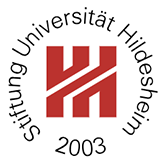Detailed introduction of the University of Hildesheim:
Introduction
The University of Hildesheim is a public university in Lower Saxony, Germany. It is the only highest-level institution of higher learning in Hildesheim, with colleges in Hildesheim, Holzminden and Göttingen.
Overview
Students and Faculty: In the winter semester of 2021/22, the school has a total of 8,574 students, of which about 69% are female. The school has about 840 faculty members, and the proportion of female professors reaches 40%, which exceeds the national average.
Discipline: A total of 9 professional departments are set up, providing nearly 30 basic learning majors and numerous possibilities for continuing education, covering education and social sciences, cultural studies and aesthetics interaction, language and information science, mathematics, natural sciences, economics and computer science.
History and establishment time
The University of Hildesheim originated from the Alfeld College of Higher Education, which was established in 1946. Due to the severe damage to the city of Hildesheim during World War II, the school was originally established in Alfeld. In 1970, the school moved back to Hildesheim as a department of the Lower Saxony State University of Education. In 1978, it became independent again and was renamed Hildesheim University of Science. In 1989, it was officially named Hildesheim University.
School Strength
Teaching Strength: The school's educational research projects, cultural studies and applied linguistics are traditional advantages. Psychology, child education, multicultural education, translation research, cross-cultural communication, environmental research and business information/computer science are also very popular, reflecting the school's teaching level in the humanities and social sciences.
Research Strength: Since becoming a public foundation university in 2003, annual third-party funding has increased sevenfold, three major construction projects have been implemented, and ten innovative professorships have been established, providing strong support for scientific research. The school focuses on interdisciplinary research and encourages teachers and students to carry out cross-field cooperation projects to solve complex social and academic problems.
Institutional nature
Public university.
Educational philosophy
Emphasis on gender equality, equal treatment of people from different social and cultural backgrounds, and educational integration, focusing on narrowing the gap between theory and practice, and cultivating students' interdisciplinary work ability.
Encourage students to actively participate in the teaching process, support students to participate in the development and improvement of teaching and learning, and motivate students with ability and social responsibility through scholarships and other means.
Key laboratories and disciplines
Key disciplines: Education and social sciences, cultural studies and aesthetics, language and information science, mathematics, natural sciences, economics and computer science are the key development directions of the school, among which the education discipline has the largest number of students, followed by cultural studies.
Key laboratories and research centers: The school did not explicitly mention that there are key laboratories in the traditional sense, but from the perspective of its discipline development, research centers or institutions related to cultural studies and exchanges, education research, etc. play an important role in promoting discipline development and scientific research innovation, such as translation research and professional exchange research institutes.
Department settings
The school has 4 departments :
Faculty of Education and Social Sciences: covers multiple professional directions related to education, and provides a comprehensive curriculum system for cultivating professional talents in the field of education.
Faculty of Cultural Studies and Aesthetic Communication: focuses on research and communication in culture, art, aesthetics, etc., and improves students' understanding and aesthetic ability of cultural phenomena through various courses and practical activities.
Faculty of Linguistics and Information Science: includes majors such as linguistics, translation, and information science, focusing on cultivating students' abilities in language application and information processing.
Faculty of Mathematics, Natural Sciences, Economics and Computer Science: provides teaching and research in natural sciences such as mathematics, physics, chemistry, biology, as well as majors such as economics and computer science, to cultivate students' comprehensive qualities in science, engineering, and economic management.
Ranking
According to the national university rankings of the Global University Network (4icu), Hildesheim University ranks 65th.
Expenses
Tuition fees: German public universities usually do not charge tuition fees, but may need to pay a certain semester fee for student services and facility maintenance, which is about 100-300 euros per semester.
Living expenses: Including accommodation, food, transportation, etc., it costs about 800-1000 euros per month.
Campus
Geographic location: Located in Hildesheim, Lower Saxony, Germany, it is located on the northwest side of the Harz Mountains in northwestern Germany and on the Inerst River southeast of Hanover. The city was built in 815 AD and was the cultural center of northern Germany in the 11th century. There are many architectural monuments from the 11th to 12th centuries in the city. The scenery is beautiful and the climate is mild, which is suitable for living and studying.
Campus facilities: The school has modern teaching facilities and complete living facilities, including libraries, laboratories, computer centers, gymnasiums, canteens, dormitories, etc., which provide convenient conditions for students' study and life.
Campus culture: The school organizes various colorful campus activities, such as academic lectures, cultural festivals, sports competitions, etc., to enrich students' extracurricular life and promote exchanges and cooperation among students. In addition, students can also participate in various student clubs and organizations to expand their interests and social circles.
-

Heidelberg University
-

University of Freiburg
-

University of Jena
-

University of Marburg
-

University of Rostock
-

University of Halle-Wittenberg
-

University of Bayreuth
-

Leipzig University
-

University of Tübingen
-

Humboldt University of Berlin
-

Mesoamerican University
-

Istmo University
-

Mariano Galvez University of Guatemala
-

Regional University of Guatemala
-

Galileo University
-

Francisco Marroquín University
-

Rafael Landívar University
-

University of the Valley of Guatemala
-

University of San Carlos of Guatemala
-

Technological Institute of Tlaxcala Plateau
-

Golfo University
-

Technological University of South Sonora
-

Technological University of Huejotzingo
-

Tizimín Institute of Technology
-

Chilpancingo Institute of Technology

